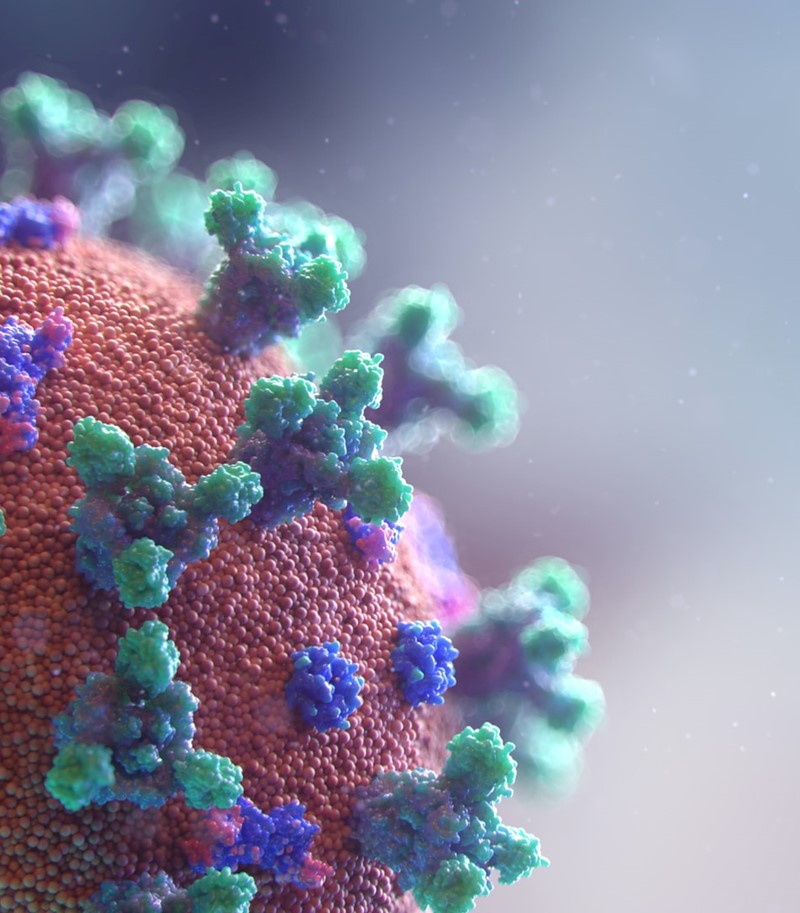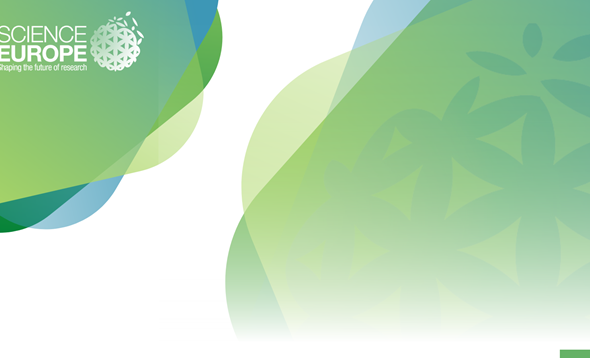
-
Share on
Europe to Keep Leading COVID-19 Pandemic and Crisis Recovery
Science Europe encourages EU Member States and Associated Countries to keep leading European and global projects to tackle the medical, social, and economic challenges brought on by COVID-19. Science Europe members can contribute with their expertise and experience to build the necessary collaborative approaches within Europe and across the world.
Twenty-first-century challenges are global and require increasingly deeper and sustained collaborations between countries. In a dramatic way, the COVID-19 pandemic exemplifies how interrelated the individual and national socio-economic spheres are. It also reminds us that viruses or other threats do not stop at national borders. The current pandemic highlights the crucial role of researchers and research collaboration to better understand this new virus by sharing data and gene sequences, and to support policymakers when taking the appropriate decisions to protect human lives.
Europe and the European Research Area (ERA) have an important role to keep leading the global response to COVID-19. This is not only because of the massive impact the pandemic has had – and will have – on all aspects of our lives, but also because Europe can bring its long-standing experience in international collaboration and multilateral negotiations to the global table.
Besides the European and national collaborative measures, an additional strategic and co-ordinated approach to long-term research and innovation agenda setting is needed to continue tackling the pandemic and its consequences, both at European level and globally.
Response from the European Commission and from Science Europe Members
Science Europe commends the European Commission (EC) for its response to the World Health Organization’s (WHO) and others calling for actions to develop and deploy diagnostics, therapeutics, and vaccines against the coronavirus, in line with the WHO R&D Blueprint.
The impressive result of the fundraising event on 4 May 2020 – a total of €9.5 billion that has been pledged so far – demonstrates the power of multilateral, multi-stakeholder worldwide initiatives to tackle emerging challenges with global impact such as the current pandemic.
In the last months since the coronavirus outbreak, the EC has done a lot to mobilise its institutions, provide funding for cutting-edge research, innovators, and public–private partnerships. In addition, the newly proposed Multiannual Financial Framework 2021–2027 foresees a new standalone health programme of €9.4 billion.
Science Europe’s members contributed their shares: National research funding and research performing organisations- have mobilised their human and financial resources, issued national, multi-national and interdisciplinary calls, provided access to databases and research infrastructures, shared data to support the European and global research community and have rapidly set up flexibility measures to maintain their operations, and support the scientific workforce for advancing COVID-related research.
Preparing for the Future
Science Europe supports the First ‘ERAvsCorona’ Action Plan, as a good set of actions to leverage the research capacities of EU Member States’ and Associated Countries under the ERA framework and Horizon Europe, the upcoming framework programme for research and innovation (R&I).
Science Europe would like to stress the following seven points that the EC, Member States and Associated Countries should consider:
- Strengthen long-term investment in R&I as the main means to prepare the future to cope with viral diseases. This should be aimed at understanding transmission and propagation mechanisms, immunology and immune responses, technology development and socio-economic research. The objective is for European countries to contribute to the provision of rapid and affordable diagnostics, treatments and vaccines to all European and global citizens.
- Establish a co-funded partnership for long-term research, development, and innovation on biomedical solutions, both for this pandemic and future epidemics, building on the co-ordination efforts of the Global Research Collaboration for Infectious Disease Preparedness (GloPID-R). The partnership should not only provide funds for R&I on economic and societal responses, but also include assistance to third countries.
- Establish a co-ordinated approach on a global level by contributing with larger-scale, multi-country clinical trials across all of Europe and beyond for evaluating interventions like therapeutics and vaccines. Exploit to the full computer science instruments to provide the necessary statistics and measurements. Also, foster design and implementation of multi-country social surveys.
- A rich and diverse research ecosystem including all socio-economic and cultural fields is the best investment towards a resilient society. The more research can contribute to the understanding of long-term effects of pandemics, the better decision-makers can prepare for future potential new crises. In-depth study should be carried out of social impacts on education, training, or remote work, recovery speed and stimulation of a greener, more sustainable economy with better, more local supply chains.
- Further communication sharing and exchange with citizens during the crisis and fight fake news. The pandemic has proven that great communication efforts are required to engage citizens. Mutual learning across Europe will help to find the right mechanisms for a sound crisis communication.
- Further support the efforts by research actors (research performers, research funders, scholarly publishers) in publishing research results, ensuring immediate open access to research results and data. The momentum built for open access to research data and publications during the COVID-19 pandemic should serve as an example and be extended to all areas of publicly-funded research;
- Promote and apply best practices in sharing research data including data from clinical trials and other COVID-19-related research (e.g. omics practices, epidemiology and social sciences) for rapid response and informed decision-making. Properly anonymised data needs to be “as open as possible, as closed as necessary”. Good practices on alignment of research data management using the Science Europe Guide; sharing data under the FAIR principles (Findable, Accessible, Interoperable, Reusable) using the Research Data Alliance Guidelines and Recommendations should be the norm.
Science Europe encourages EU Member States and Associated Countries to keep leading European and global projects to tackle the medical, social, and economic challenges brought on by COVID-19. Science Europe members can contribute with their expertise and experience to build the necessary collaborative approaches within Europe and across the world.
More information
- First ‘ERAvsCorona’ Action Plan
- WHO R&D Blueprint and COVID-19
- Global Research Collaboration for Infectious Disease Preparedness (GloPID-R)
- Coronavirus Global Response (see also the European Commission Q&A on the Global Response)
- Research Data Alliance
- Science Europe Practical Guide to the International Alignment of Research Data Management
- Science Europe COVID-19 Priority Area














